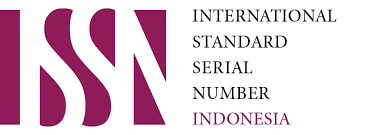The Role of Waqf as an Instrument of Islamic Philanthropy in Financing Islamic Education
DOI:
https://doi.org/10.24252/iqtisaduna.v11i1.53269Keywords:
Waqf, Islami Philanthropy, Education, FinancingAbstract
Islamic education plays a vital role in shaping individual character and driving the progress of a nation. Islamic philanthropy holds significant potential in supporting the financing of education. Waqf, as one of the philanthropic instruments in Islam, can serve as a sustainable funding source for Islamic educational institutions. This article aims to discuss the role and contributions of Islamic philanthropy, particularly waqf, in the development of Islamic education. The method employed in this study is a literature review, gathering information and data from various relevant sources. The findings of this literature study demonstrate that waqf plays a highly strategic role in financing Islamic education. Waqf can provide a sustainable funding source, improve the quality of educational services, and offer broader access to education for the community. Using waqf can encompass infrastructure development, scholarship provision, curriculum enhancement, and improving educators' welfare.
Downloads
References
Alfikri, A. (2023). PENGELOLAAN WAKAF TUNAI OLEH AZISWA DI PONDOK PESANTREN USHULUDDIN LAMPUNG SELATAN. Jurnal Ilmiah Ar-Risalah: Media Ke-Islaman, Pendidikan Dan Hukum Islam, 21(2), 175–197.
ALI, A. S. (2019). Analisis Pengelolaan Harta Waqaf Di Kota Banda Aceh. Akbis: Media Riset Akuntansi Dan Bisnis, 3(2), 92–101. https://doi.org/10.35308/akbis.v3i2.1383
Alias, N. A. B., Yahya, S. A., & Rozali, E. A. (2023). Waqf Impact towards Ottoman Reigns in Bosnia and Herzegovina during 15th to 17th Century. Journal of Al-Tamaddun, 18(2), 205–216. https://doi.org/10.22452/JAT.vol18no2.14
Arno, A. K. (2018). Wakaf Produktif Sebagai Instrumen Kesejahteran Sosial Dan Pemberdayaan Ekonomi Umat (Potensi Dan Tantangan). Dinamis: Journal of Islamic Management and Bussiness, 1(2).
Ayub, M., Khan, K., Khan, M., & Ismail, M. (2024). Waqf for accelerating socioeconomic development: a proposed model with focus on Pakistan. Qualitative Research in Financial Markets, 16(5), 937–961. https://doi.org/10.1108/QRFM-07-2023-0161
Bundo, M., Putra, D. E., & Afriyanti, A. (2023). Potret Unit Usaha Pondok Pesantren Yayasan Waqaf Ar Risalah Sumatera Barat. Jurnal Ilmiah Ekonomi Islam, 9(01), 1480–1484. https://www.jurnal.stie-aas.ac.id/index.php/jei/article/view/8450
Çizakça, M. (2013). Finance and development in Islam: A historical perspective and a brief look forward. Economic Development and Islamic Finance, 133.
Dewi, N. D., & Zaenurrosyid, A. (2023). Islamic Philanthropic Institutions in the Development of Education and Economic Empowerment. Islamic Review: Jurnal Riset Dan Kajian Keislaman, 12(1), 19–34.
Fauzia, A. (2013). Faith and the state: A history of Islamic philanthropy in Indonesia (Vol. 1). Brill.
Hadi Ryandono, M. N., & Hazami, B. (2016). Peran Dan Implementasi Waqaf Dalam Peningkatan Kesejahteraan Masyarakat. Inferensi, 10(1), 239. https://doi.org/10.18326/infsl3.v10i1.239-264
Jacobi, J. (2009). Between charity and education: orphans and orphanages in early modern times. Paedagogica Historica, 45(1–2), 51–66.
Jaya Saputra, Hilalludin Hilalludin, & Adi Haironi. (2024). Mimpi Besar Abdullah Sa’id Dalam Pengembangan Pendidikan Islam Di Indonesia. Tabsyir: Jurnal Dakwah Dan Sosial Humaniora, 5(3), 118–124. https://doi.org/10.59059/tabsyir.v5i3.1330
Kasdi, A. (2016). Filantropi Islam untuk pemberdayaan ekonomi umat (Model pemberdayaan ZISWAF di BMT Se-Kabupaten Demak). Iqtishadia: Jurnal Kajian Ekonomi Dan Bisnis Islam STAIN Kudus, 9(2), 227–245.
Kurniawan, T. (2022). Strategi Kebijakan Pembangunan Sosial Melalui Gerakan Filantropi Islam Di Kabupaten Belitung. Fikri: Jurnal Kajian Agama, Sosial Dan Budaya, 7(2), 116–133.
Latief, H. (2013). Filantropi Dan Pendidikan Islam Di Indonesia Hilman Latief. Jurnal Pendidikan Islam, 28(1), 123–139. https://journal.uinsgd.ac.id/index.php/jpi/article/view/540/537
Latief, H., As’ad, S., & Khasanah, M. (2015). Fleksibilitas Pemaknaan Wakaf Tunai di Indonesia: Studi terhadap Lembaga Filantropi dan Lembaga Keuangan. Afkaruna, 11(1), 66–95. https://doi.org/10.18196/aiijis.2015.0044.66-95
Paulsen, T., Scheve, K., & Stasavage, D. (2023). Foundations of a New Democracy: Schooling, Inequality, and Voting in the Early Republic. American Political Science Review, 117(2), 518–536. https://doi.org/10.1017/S000305542200079X
Payton, R. L., & Moody, M. P. (2008). Understanding philanthropy: Its meaning and mission. Indiana University Press.
Piliyanti, I. (2010). Transformasi Tradisi Filantropi Islam. Jurnal Pemikiran Dan Penelitian Ekonomi Islam, 11(11), 1–14.
Suryadi, N., & Yusnelly, A. (2019). Pengelolaan Wakaf Uang di Indonesia. Syarikat: Jurnal Rumpun Ekonomi Syariah, 2(1), 27–36. https://doi.org/10.25299/syarikat.2019.vol2(1).3698




